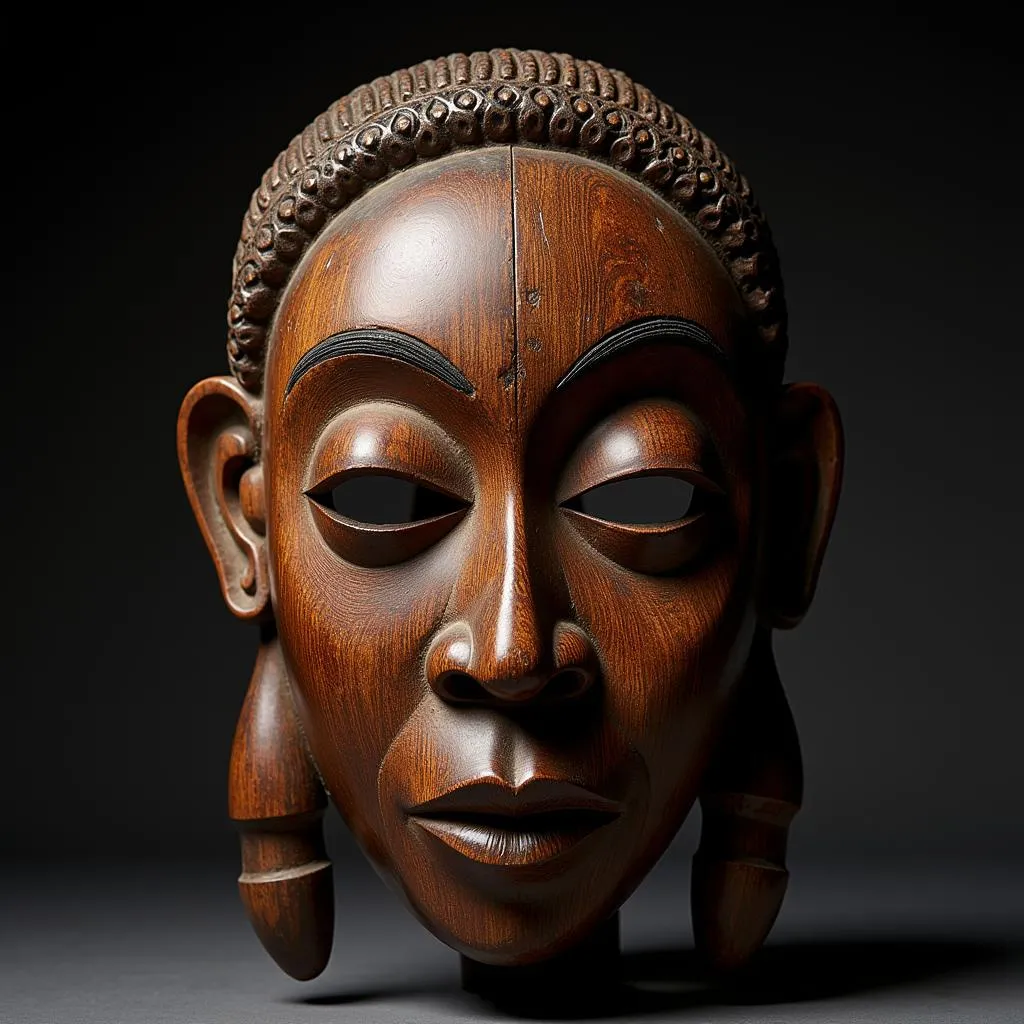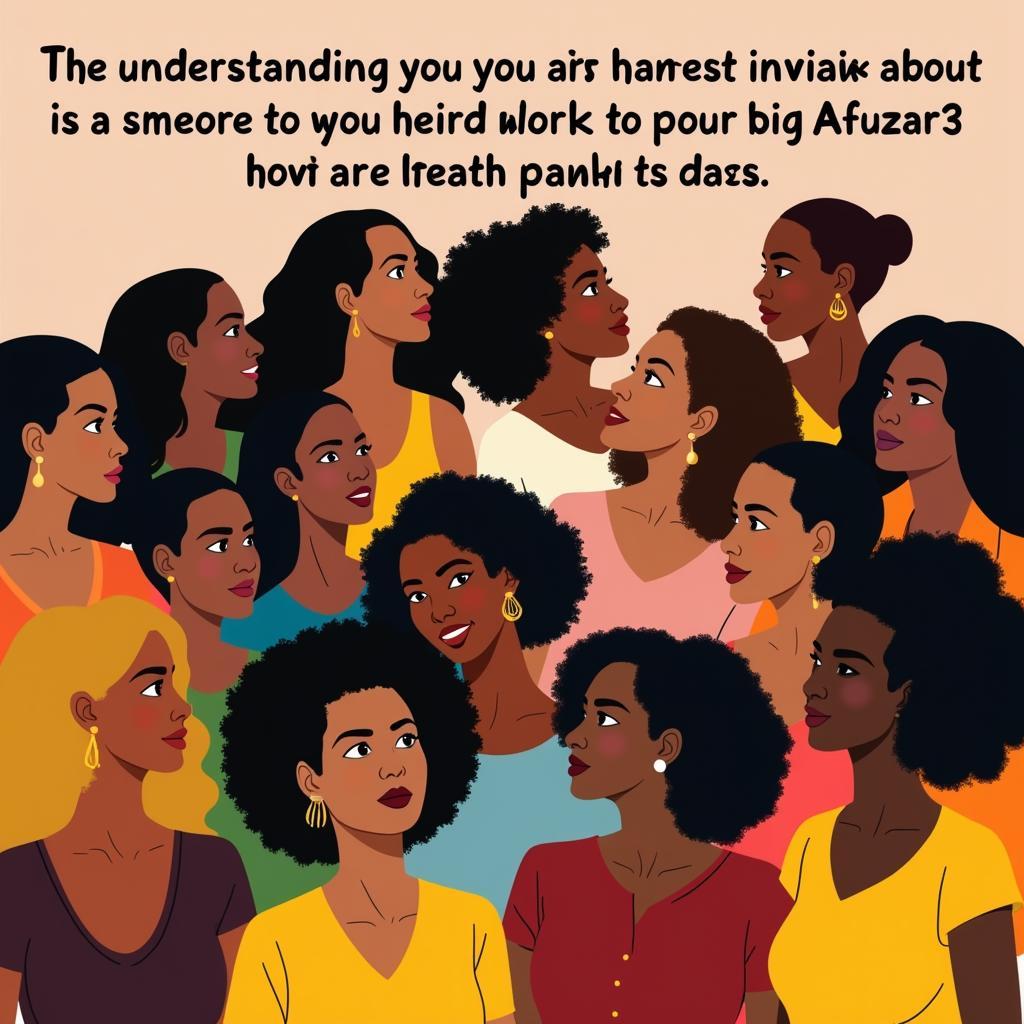Unpacking the Misused Concept of African Atavism
The term “African Atavism” might sound like a scientific concept, but in reality, it’s a dangerous relic of outdated and racist thinking. It’s often used to suggest that people of African descent are somehow less evolved or more primitive than other races, harking back to a time when pseudoscientific theories were used to justify colonialism and slavery.
The Roots of a Harmful Idea
The concept of “African atavism” emerged in the 19th century, fueled by the flawed theories of social Darwinism. Proponents of these theories, instead of seeing the rich diversity of human evolution, twisted scientific concepts to promote a hierarchical view of humanity, placing Europeans at the top and Africans at the bottom.
 African tribal mask with intricate details
African tribal mask with intricate details
This dangerous idea wasn’t confined to obscure academic circles. It seeped into popular culture, influencing literature, art, and even medical practices. Africans were often depicted as savage, childlike, and incapable of higher thought – a narrative used to legitimize their subjugation and exploitation.
Dismantling the Myth of “African Atavism”
Today, we understand that the concept of “African atavism” has absolutely no scientific basis. Modern genetics has definitively proven that race is a social construct, not a biological one. Human variation is incredibly complex, and there is more genetic diversity within the African continent than in the rest of the world combined.
 An African scientist conducting research in a modern laboratory
An African scientist conducting research in a modern laboratory
Furthermore, attributing specific traits or behaviors to an entire continent is deeply problematic. Africa is not a monolith. It’s a continent of 54 countries, each with its own unique history, culture, and social structures. To suggest that over 1.3 billion people can be defined by a single, derogatory term is not only inaccurate but also deeply offensive.
Moving Beyond Harmful Labels
It’s crucial to understand that language is not static. Words have power, and using terms like “African atavism,” even out of ignorance, can perpetuate harmful stereotypes. As we strive for a more just and equitable world, we must be mindful of the language we use and actively challenge prejudiced thinking wherever we encounter it.
Instead of clinging to outdated and racist concepts, let’s celebrate the rich tapestry of cultures, traditions, and perspectives that Africa offers. Let’s engage with the continent’s history and its people on its own terms, recognizing the resilience, creativity, and diversity that have always defined Africa.
By confronting the harmful legacy of “African atavism,” we can begin to build a more accurate and respectful understanding of Africa and its people.

